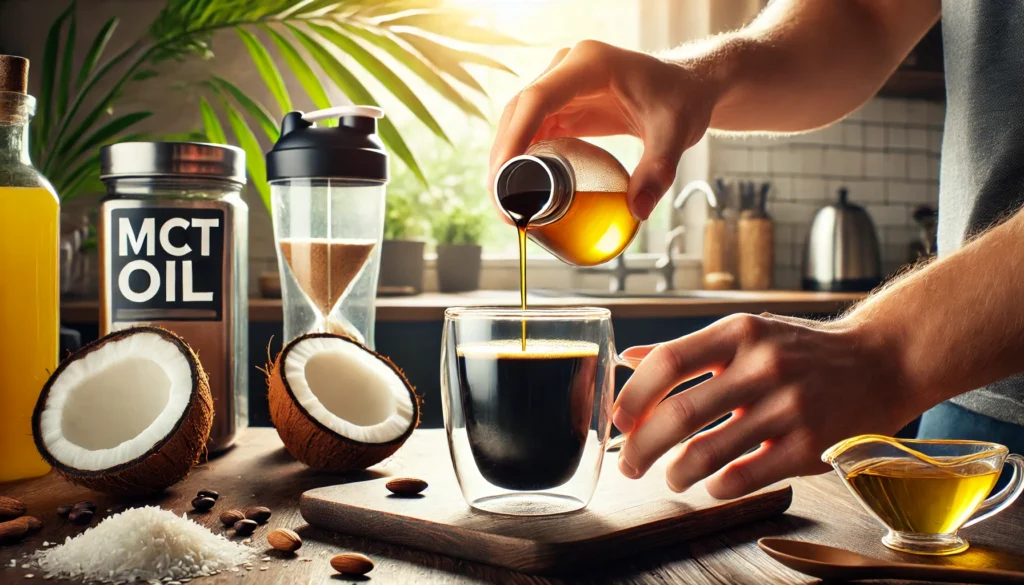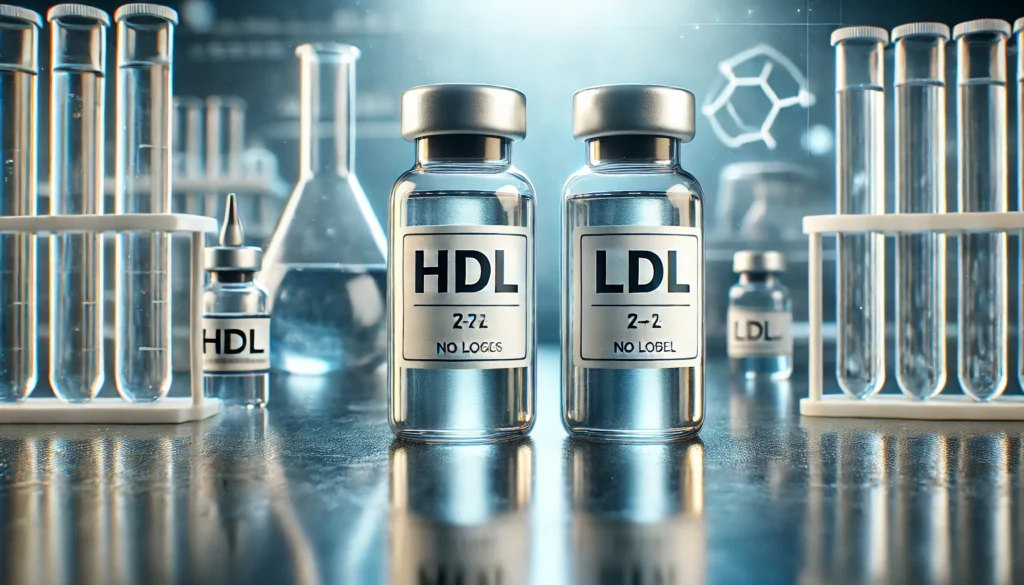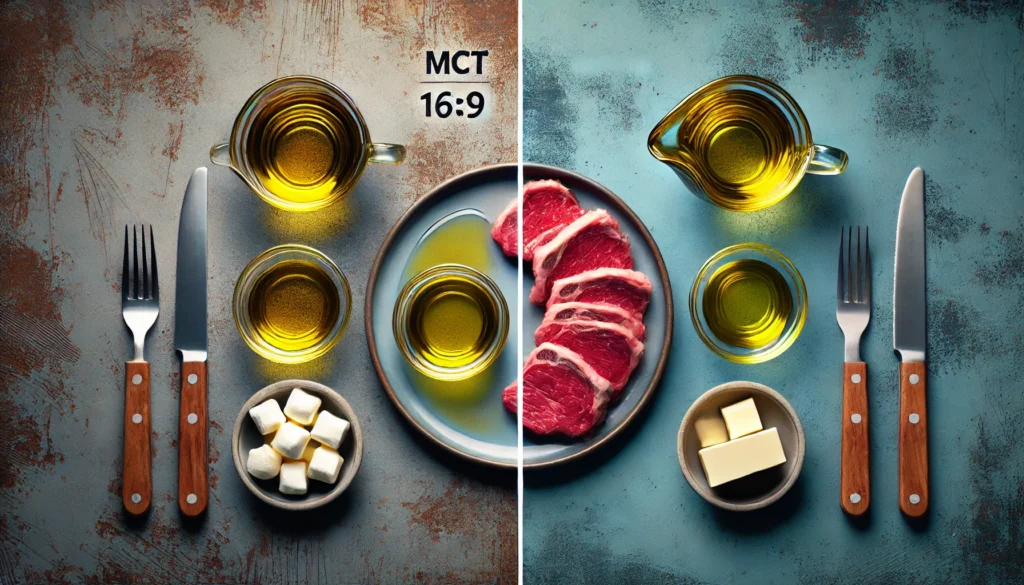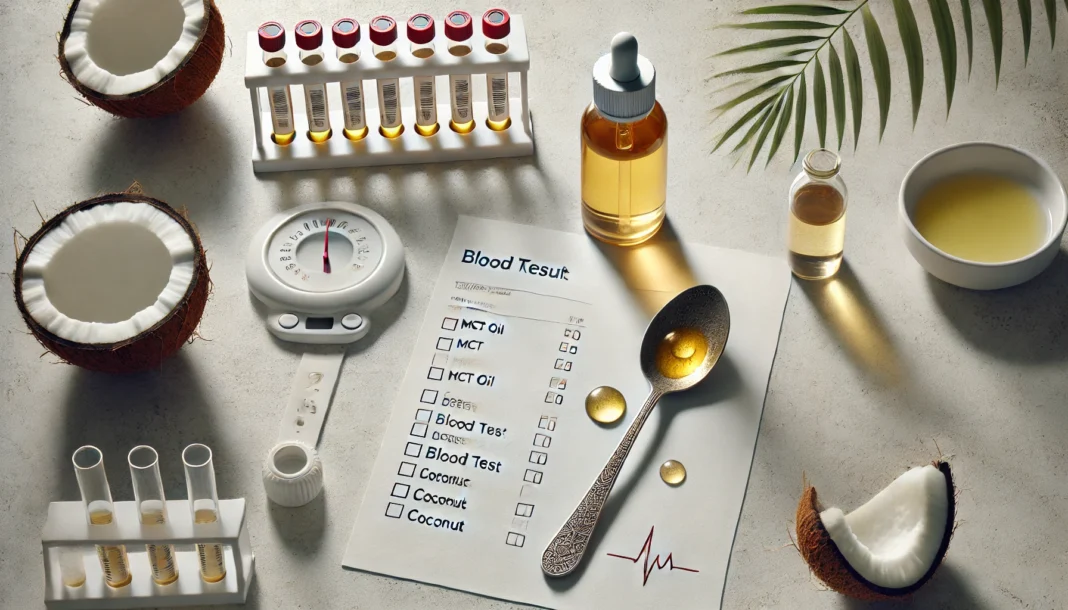Introduction
In today’s nutrition-driven world, where dietary oils are both praised and vilified, MCT oil has carved a notable niche for itself. Hailed for its metabolic benefits, mental clarity enhancement, and ability to support weight management, this medium-chain triglyceride oil is often found in the diets of health-conscious individuals, keto followers, and biohackers. Yet, despite its celebrated role in optimizing fat metabolism and energy production, a pressing cardiovascular concern persists: does MCT oil increase LDL cholesterol? And more broadly, does MCT oil increase cholesterol in ways that could negatively impact heart health?
You may also like: MCT Oil for Dementia and Brain Health: Exploring Its Role in Memory, Function, and Alzheimer’s Support
These questions are not merely academic—they lie at the heart of an ongoing debate surrounding the safety of saturated fats, particularly those found in popular supplements like MCT oil. Consumers want clarity. On one side, enthusiasts claim MCT oil supports fat burning, enhances ketone production, and may even be heart protective. On the other, critics argue that any saturated fat, regardless of molecular length or source, has the potential to raise LDL cholesterol levels, a known risk factor for atherosclerosis and cardiovascular disease.
In this article, we’ll unravel the complex relationship between MCT oil and blood cholesterol levels by examining current research, expert analyses, and real-world clinical data. We’ll explore how MCT oil compares to other saturated fats, how it behaves in the body, and whether its metabolic benefits outweigh potential lipid-related drawbacks. With cholesterol health being a major focus of public health today, this evidence-based guide will help you decide whether MCT oil belongs in your daily routine—or if you should approach with caution.

What Is MCT Oil and Why Is It Popular?
MCT oil stands for medium-chain triglyceride oil, a type of fat composed of medium-length carbon chains typically ranging from 6 to 12 carbon atoms. Unlike long-chain triglycerides (LCTs), which make up most of the dietary fats we consume, MCTs are metabolized quickly by the liver and converted into ketones, providing a rapid source of energy without requiring glucose or insulin.
The most commonly found MCTs in supplements are caprylic acid (C8) and capric acid (C10). These are primarily sourced from coconut oil or palm kernel oil, though refined MCT oil isolates these specific fatty acids for more targeted metabolic effects. MCT oil has become a cornerstone of the ketogenic diet because of its unique ability to boost ketone levels even in the absence of strict carbohydrate restriction.
Many proponents take MCT oil to boost cognitive function, support athletic performance, promote fat loss, and enhance satiety. However, its composition as a saturated fat leads to understandable concerns about its impact on cardiovascular biomarkers—particularly cholesterol. That brings us to the central focus: does MCT oil increase LDL cholesterol, and should this affect its widespread use?
Understanding Cholesterol: LDL, HDL, and Total Cholesterol
Before assessing the impact of MCT oil, it’s essential to understand the basics of cholesterol metabolism. Cholesterol is a waxy, fat-like substance produced by the liver and consumed through diet. While necessary for hormone synthesis, cell membrane integrity, and vitamin D production, excess cholesterol in the bloodstream—especially low-density lipoprotein (LDL) cholesterol—can lead to plaque formation in arteries.
LDL cholesterol, often labeled “bad cholesterol,” transports cholesterol from the liver to tissues. If too much LDL circulates in the blood, it can deposit on arterial walls and contribute to atherosclerosis, increasing the risk of heart attack or stroke. High-density lipoprotein (HDL) cholesterol, by contrast, is considered “good cholesterol” because it removes cholesterol from the bloodstream and transports it back to the liver for excretion.
Dietary fats, especially saturated fats, have historically been linked to increased LDL cholesterol. However, not all saturated fats act the same way. This is where MCT oil enters a gray area—some studies suggest it may have a neutral or even beneficial effect on lipid profiles, while others point to a possible increase in LDL levels.

Does MCT Oil Increase LDL Cholesterol? What the Research Says
When asking “does MCT oil increase LDL cholesterol,” the scientific literature presents a nuanced picture. Several clinical studies have aimed to determine whether the saturated nature of MCT oil affects cholesterol in the same way that long-chain saturated fats (like those found in butter or lard) do.
A 2003 randomized study published in the Journal of Nutrition compared MCT oil to olive oil in overweight men and women. The researchers found that participants consuming MCT oil for 12 weeks had lower body weight, reduced fat mass, and no significant increase in LDL cholesterol compared to those consuming olive oil. In fact, some participants experienced a slight increase in HDL cholesterol, which is cardioprotective.
However, other studies show more mixed results. A 2016 meta-analysis published in Nutrition Reviews evaluated multiple randomized trials involving MCT consumption. The researchers concluded that while MCT oil may slightly increase LDL cholesterol in some individuals, it also consistently increased HDL levels—leading to a better LDL/HDL ratio overall. This is a critical distinction, as a balanced lipid ratio is often more predictive of cardiovascular risk than LDL or total cholesterol alone.
In short, while MCT oil may increase LDL cholesterol slightly in certain individuals, the increase is often accompanied by improvements in HDL cholesterol, creating a more favorable lipid balance. It’s essential to interpret cholesterol changes in the broader context of ratios, particle size, and other health markers.
Does MCT Oil Increase Cholesterol Overall?
The question “does MCT oil increase cholesterol” must be examined beyond LDL alone. Total cholesterol includes LDL, HDL, and very low-density lipoprotein (VLDL) cholesterol. MCT oil’s effects on these lipid subtypes vary depending on the individual’s metabolic state, baseline cholesterol levels, diet, and other lifestyle factors.
In many trials, MCT oil increases HDL cholesterol more significantly than LDL, leading to a net neutral or even improved total cholesterol profile. Furthermore, MCTs tend to increase the size of LDL particles, which are considered less atherogenic (less likely to cause arterial damage) than smaller, denser LDL particles associated with processed foods and trans fats.
Some people may experience a modest increase in total cholesterol with MCT oil, but this does not necessarily translate into increased cardiovascular risk. Emerging lipidology research emphasizes looking beyond total cholesterol to understand markers like the triglyceride-to-HDL ratio, inflammatory markers (like CRP), and insulin resistance—all of which are influenced by MCTs.
In fact, MCT oil’s potential benefits in reducing insulin levels, supporting fat loss, and decreasing central adiposity (belly fat) may offset any mild cholesterol elevation. Insulin resistance and visceral fat are increasingly recognized as major drivers of cardiovascular disease, possibly even more so than cholesterol itself.

Comparing MCT Oil with Other Saturated Fats
Not all saturated fats are metabolized the same way. Long-chain saturated fats found in red meat and butter require bile emulsification and lymphatic transport and are more likely to be stored in adipose tissue. In contrast, medium-chain triglycerides like those in MCT oil are absorbed directly via the portal vein and rapidly oxidized for energy.
Research shows that MCTs have a different impact on lipid metabolism than LCTs. For example, a study in the American Journal of Clinical Nutrition compared diets rich in MCT oil versus LCTs in healthy men. The MCT group had significantly lower total cholesterol and LDL levels after several weeks, despite consuming equal amounts of fat.
These findings suggest that MCT oil may be a more favorable option than other saturated fat sources for individuals concerned about cholesterol. Still, moderation and context matter. Incorporating MCT oil into a balanced diet rich in fiber, antioxidants, and unsaturated fats is likely to yield the best outcomes.
Individual Variability: Who Might Experience an Increase in LDL from MCTs?
Despite overall trends in clinical data, individual responses to MCT oil can vary widely. Genetics, current diet, gut microbiome composition, and underlying health conditions all play roles in lipid metabolism. Some individuals may be more sensitive to saturated fats, including MCT oil, and may experience a more noticeable increase in LDL cholesterol.
People with familial hypercholesterolemia or pre-existing lipid abnormalities should consult a healthcare provider before adding significant amounts of MCT oil to their diets. In such cases, even beneficial fats might need to be limited or closely monitored through periodic lipid panels.
For others, especially those with low HDL, high triglycerides, or insulin resistance, MCT oil may offer a metabolic advantage without significantly altering cholesterol levels negatively. The key is personalized nutrition, careful monitoring, and understanding how MCTs fit into an individual’s total dietary pattern.

The Role of MCT Oil in Weight Management and Cardiovascular Risk
One of the indirect ways MCT oil may influence cardiovascular health is through its impact on weight. Excess body fat, particularly visceral fat, is strongly correlated with increased LDL cholesterol, systemic inflammation, and insulin resistance. MCT oil supports fat oxidation, increases thermogenesis, and can enhance satiety—factors that contribute to weight loss or maintenance.
Multiple studies, including a 2015 trial in The European Journal of Clinical Nutrition, show that replacing other fats with MCT oil leads to greater reductions in body fat over time. When body fat is reduced, LDL cholesterol often follows suit.
Therefore, for individuals struggling with weight-related metabolic dysfunction, MCT oil may serve as a useful tool not only for fat loss but also for reducing cardiovascular risk indirectly. Again, these benefits depend on dose, consistency, and the quality of the overall diet.
Frequently Asked Questions
1. Does MCT oil increase LDL cholesterol in everyone?
Not necessarily. While some people may experience a mild increase in LDL cholesterol when consuming MCT oil, others see no change or even an improvement in lipid ratios. The effect largely depends on the individual’s genetic profile, overall diet, and existing health status. Importantly, increases in LDL from MCT oil are often accompanied by increases in HDL cholesterol, which may offset any potential cardiovascular risk.
2. How does MCT oil differ from other saturated fats in cholesterol effects?
MCT oil is metabolized differently from long-chain saturated fats. It is absorbed directly through the portal vein, bypasses bile digestion, and is rapidly converted into energy or ketones. This unique pathway makes it less likely to be stored in fat tissue and may explain its relatively neutral impact on cholesterol. Unlike traditional saturated fats, MCT oil does not consistently raise LDL cholesterol and may even improve overall lipid profiles.
3. Is it safe to consume MCT oil daily if I have high cholesterol?
If you have high cholesterol, it’s best to consult a healthcare provider before starting MCT oil supplementation. While moderate consumption may be safe and even beneficial for some individuals, others may experience cholesterol increases that require monitoring. Ideally, you should track lipid markers before and after adding MCT oil to your diet and adjust intake based on personal response.
4. Can MCT oil raise HDL cholesterol and improve lipid ratios?
Yes. Multiple studies indicate that MCT oil can increase HDL cholesterol, the “good” cholesterol that helps remove excess cholesterol from the bloodstream. This effect improves the LDL/HDL ratio, which is considered a more accurate predictor of heart disease risk than either value alone. Improved ratios suggest MCT oil may offer protective cardiovascular effects for some users.
5. Does the amount of MCT oil consumed affect cholesterol outcomes?
Absolutely. Like any nutrient, dosage matters. Consuming small amounts (1–2 teaspoons daily) is less likely to affect cholesterol levels negatively compared to higher doses (2–3 tablespoons or more). Most studies assessing cholesterol impacts use moderate doses, and effects tend to be dose-dependent. Starting with a small amount and monitoring your lipid profile over time is the safest approach.
6. Should people on statins avoid MCT oil?
There is no general contraindication between MCT oil and statin use. However, because MCT oil is a saturated fat, those on statins for high cholesterol should consult their physician before incorporating it regularly. Some individuals may tolerate MCT oil well without affecting cholesterol management, while others may need to limit intake based on personal lipid responses.
7. Does MCT oil increase cholesterol more in people on keto diets?
People on ketogenic diets often consume higher amounts of saturated fat overall, including MCT oil. In some cases, this can lead to elevated LDL cholesterol, particularly in individuals with genetic susceptibility. However, keto dieters also tend to see increases in HDL cholesterol and reductions in triglycerides, which may offset LDL concerns. Monitoring is crucial in this population to ensure cholesterol remains in a healthy range.
8. Can MCT oil improve cardiovascular health despite LDL increases?
Yes, it’s possible. MCT oil may improve several other markers of cardiovascular health, including body composition, insulin sensitivity, and HDL levels. These changes can lower overall cardiovascular risk even if LDL cholesterol rises slightly. It’s important to interpret cholesterol levels within the context of a complete metabolic profile rather than in isolation.
9. Are there better alternatives to MCT oil for people concerned about cholesterol?
If cholesterol management is your primary concern, other fats such as monounsaturated fats (from olive oil, avocado, and nuts) or polyunsaturated fats (from flaxseeds and fatty fish) may be preferable. These fats have well-documented benefits for heart health and are associated with reductions in LDL cholesterol. However, MCT oil can still be part of a heart-healthy diet when used in moderation and balanced with other nutrients.
10. What blood tests should I monitor when taking MCT oil?
If you’re incorporating MCT oil and concerned about cholesterol, monitor your lipid panel, including total cholesterol, LDL, HDL, and triglycerides. Advanced lipid testing such as LDL particle size, ApoB, and inflammatory markers like C-reactive protein (CRP) can provide deeper insights. Speak with your healthcare provider about baseline testing and follow-up every 3–6 months after introducing MCT oil.

Conclusion
So, does MCT oil increase LDL cholesterol? The answer is: it depends. While some individuals may experience a slight rise in LDL levels with MCT oil use, many others see neutral or even positive effects on their overall lipid profile. The key lies in the context—your diet, genetics, metabolic state, and dosage all influence the outcome.
More importantly, any modest rise in LDL is often offset by improvements in HDL cholesterol, triglycerides, insulin sensitivity, and body fat percentage—factors that collectively reduce cardiovascular risk. MCT oil, when used intelligently and in conjunction with a balanced, nutrient-rich diet, can be a powerful ally in your health toolkit without compromising cholesterol health.
If you are navigating cholesterol concerns or managing cardiovascular risk, it’s vital to personalize your approach. Monitor your blood work, consult your doctor, and remember: nutrition is rarely black and white. With thoughtful use, MCT oil can support both your metabolic goals and your heart health.
Was this article helpful? Don’t let it stop with you. Share it right now with someone who needs to see it—whether it’s a friend, a colleague, or your whole network. And if staying ahead on this topic matters to you, subscribe to this publication for the most up-to-date information. You’ll get the latest insights delivered straight to you—no searching, no missing out.
Further Reading:
MCT Oil and Ketosis: How This Ketogenic Oil Boosts Fat Burning and Energy
MCT Foods for Weight Loss: What to Eat, How It Works, and Why It Matters
How to Use MCT Oil in Coffee: Health Benefits, Dosage, and Daily Use Explained



